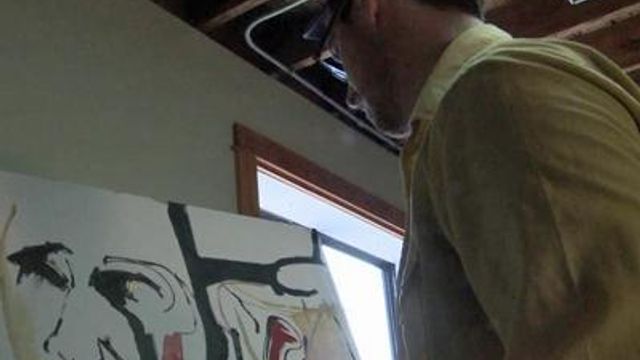UNC mental illness patients define themselves through art
People with serious mental illness fight social stigma in addition to the disease. For those who are diagnosed, medication and therapy can help them live more normal lives. Some find effective therapy through self expression.
Posted — UpdatedEver since he can remember, Grayson Bowen wanted to be an artist.
“The whole reason I got into art was, you know, to express myself,” he said.
By age 14, expressing himself was complicated by hallucinations and mood problems that led to hospitalization and treatment.
“I have a challenge – a schizo-affective disorder – so I try not to let that define me as a person,” he said.
University of North Carolina School of Medicine psychiatrist Dr. John Gilmore says art is one area in which people with mental disorders can explore their potential.
That's the idea behind a gallery called Brushes with Life, which is displayed in the same halls where patients come for help with their illness. The artists price their own work. If sold, they get 100 percent of the money.
The gallery, which began in 2001, is permanent, with new works constantly rotating in. Some of the pieces are displayed in the main lobby of the UNC neurosciences hospital.
“People realize that they are not their illness. They're still people with lots of potential,” Gilmore said. “Medicine can only help people to a certain point, and there's a lot more that has to happen.”
Gilmore says studies show art is an effective therapy for psychiatric illnesses. He has seen it make a big difference in his patients' lives, especially when the work is displayed.
“I think displaying art is a really wonderful thing,” Bowen said. “It really generates a positive feeling.”
Bowen says medication, therapy and his love for painting helped him earn a master of fine arts degree.
Bowman credits his family for strong loving support. When he's not working in the studio, he works as a peer support specialist in Durham to help others dealing with mental illness.
• Credits
Copyright 2024 by Capitol Broadcasting Company. All rights reserved. This material may not be published, broadcast, rewritten or redistributed.





